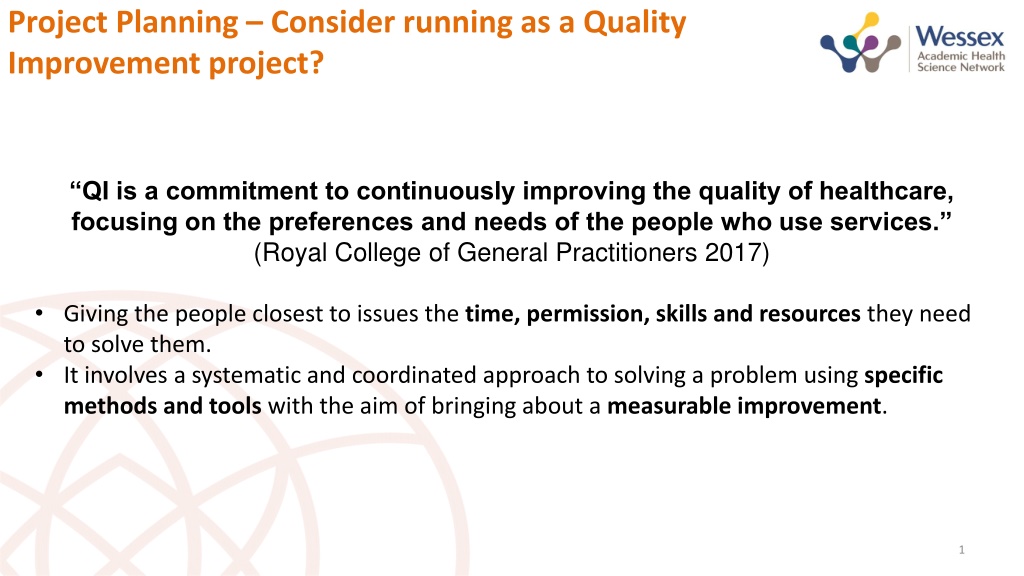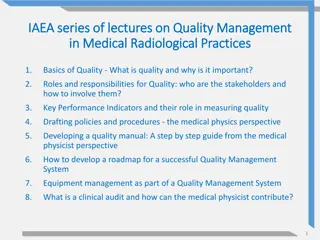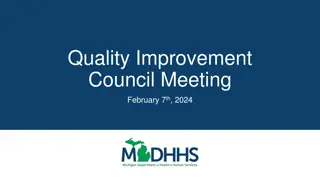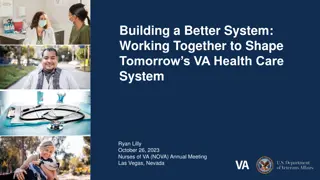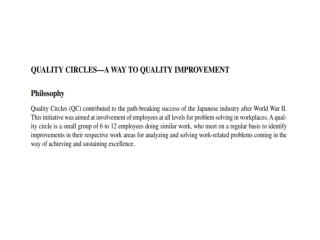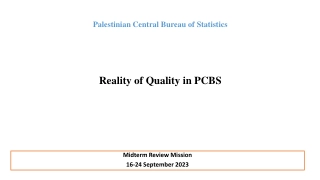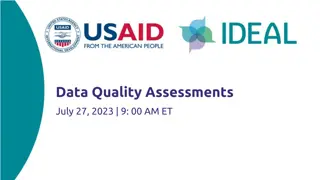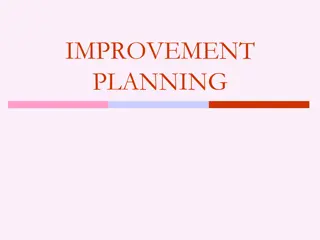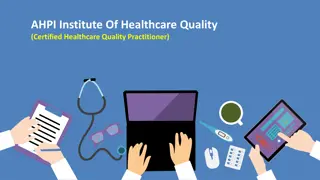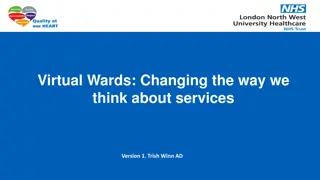Implementing Quality Improvement Projects in Healthcare
Quality Improvement (QI) projects in healthcare involve a systematic approach to solving problems and bringing about measurable improvements. This involves initial engagement with key stakeholders, project planning, deployment, and project review for continuous enhancement in healthcare services.
Download Presentation
Please find below an Image/Link to download the presentation.
The content on the website is provided AS IS for your information and personal use only. It may not be sold, licensed, or shared on other websites without obtaining consent from the author. Download presentation by click this link. If you encounter any issues during the download, it is possible that the publisher has removed the file from their server.
Presentation Transcript
Project Planning Consider running as a Quality Improvement project? QI is a commitment to continuously improving the quality of healthcare, focusing on the preferences and needs of the people who use services. (Royal College of General Practitioners 2017) Giving the people closest to issues the time, permission, skills and resources they need to solve them. It involves a systematic and coordinated approach to solving a problem using specific methods and tools with the aim of bringing about a measurable improvement. 1
Plan Do Study Act (PDSA) Straight forward structure Allows for prompt implementation and rapid evaluation. We have included a guide on the FeNO web pages if you would like further detail 2
Initial Engagement - When setting up your FeNO project, identify your team their participation is vital for success Your key stakeholders/project members will include colleagues from a range of disciplines. You will need to decide upon the following; Project Lead Clinical Lead (may be same as project lead e.g. Lead respiratory GP or Nurse Finance/Procurement (e.g. Practice Manager) Training/Competency sign-off (may be same as clinical lead) Measurement/analytics Admin ACT PLAN PLAN It may just be you, in which case ensure you communicate with wider involved parties STUDY DO 4
Project Planning - Develop a plan for implementation Utilise project planning template to ensure all necessary elements have been discussed and considered as part of plan. Funding Product supply Explore the template FeNO project plan Patient group Include milestones as date markers for your project development Staffing Remember to capture and document any risks/issues (both clinical and operational) and consider mitigation plan Training ACT PLAN PLAN STUDY DO 5
Deploy - Start small and scale up Use agreed searches to choose your patient group start small Use agreed comms to contact patients (accuRx FeNO info is available) Ensure staff training is complete and competencies signed-off Ensure venue is appropriate and follows IPC guidelines Can patient record be updated with result and appropriate SNOMED code? ACT PLAN Is everyone ready? If so go live DO STUDY DO 6
Project review - any changes needed? Meet with team, or set aside time for yourself to review Have your project milestones been met? (check for any delays/barriers/challenges) Review early data, if available What has gone well? What could be improved? Any feedback to action? ACT PLAN STUDY STUDY DO 7
Is FeNO testing ready to become Business as Usual? Is everything in place for this new pathway and test to become your new/usual pathway? If not, what do we need to do? Re-visit checklist/milestones What have we learnt? What is the learning we d share? What does the data tell us? Is it what we expected? Can we share/promote out work? With who? Who is going to write up our project evaluation? (suggested evaluation template here) ACT PLAN ACT STUDY DO 8
